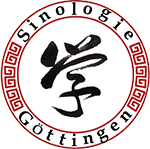Prof. Dr. Axel Schneider, University of Göttingen Prof. Dr. Thomas Fröhlich, University of Hamburg
Lecture Kai Vogelsang (Universität Hamburg): China’s Fragmented Modernity
KWZ 0.610 sowie OnlineApril 22, 2022, 12:00 PM Amsterdam, Berlin, Rome, Stockholm, Vienna On Campus: KWZ 0.610 (Heinrich-Düker-Weg 14, 37073 Göttingen) On Zoom: For registration, please use this zoom link. When modern concepts and institutions entered China in the early 20th century, they met a society which was quite unlike its European and American counterparts. While functional differentiation, […]
Lecture Rebecca Nedostup, Associate Professor of History & East Asian Studies (Brown University): Is Modern Chinese History Secular?
OnlineApril 29, 2022, 4 PM, Amsterdam, Berlin, Rome, Stockholm, Vienna On Zoom: For registration, please use this Zoom link. This lecture takes up the most fundamental construction of secularization – the separation of the religious realm from that of politics, philosophy, science, economics, and so on – and asks not simply how it has influenced […]
Lecture Justin Ritzinger, Associate Professor of Religious Studies (University of Miami): Push and Pull: Toward a Taylorian Theory of Alternative Modernities
OnlineMay 6, 2022, 4 PM Amsterdam, Berlin, Rome, Stockholm, Vienna On Zoom: For registration, please use this zoom link. Religion occupies a vexed position in many visions of modernity. It stands as the embodiment of “tradition,” of the nonmodern, of the irrational. It is thus presumed to be condemned to a shrinking sphere of social […]
Lecture: Understanding the Alienated Self: The Interest in and Problematization of the Village in the Post May-Fourth Period 认识被化外的自我:后五四时期对乡村的关注和农村的问题化 Luo Zhitian 罗志田 (Distinguished Professor), History Department, Sichuan University
OnlineMay 27, 2022, 10:00 AM Amsterdam, Berlin, Rome, Stockholm, Vienna On Zoom: For registration, please use this zoom link. The lecture will be held in Chinese. 乡村曾被视为中国社会与文化的基础,在近代改称“农村”后,逐渐被认为出了问题。农村怎样成为“问题”及其所成的“问题”本身,既伴随着中国现代性展开的进程,也因其间的“现代”眼光所生成。这背后的一个要因,是城市的兴起和城乡的对立。由于城市被视为国家的主体,原来作为广土众民代表的乡村逐渐沦为化外,不复能表述自己。在五四后出现一种读书人想要了解自己国家的倾向,先是开始关注已近于未知的农村,观感褒贬参半;接着是被关注者逐渐问题化,见解贬多于褒;最后是问题化的农村升级为“破产”或“崩溃”,表述以贬为主。其间一个重要特点,是一些人因缺乏了解而把常态看成变态,甚至把国家整体的危难移植到农村身上。 This lecture is part of the lecture series New Perspectives on Modernity in China. . Organizers: Prof. Dr. Axel Schneider, University of Göttingen Prof. Dr. Thomas Fröhlich, University […]
Lecture: Ong Chang Woei on „Building a New Chinese State from the Northwest: The Proposal of Liu Guangfen (1843-1903)“
Online (Zoom)On Zoom: For registration (required), please use this Zoom link. Abstract: At the beginning of his book Origins of the Modern Chinese State, Kuhn asks, “What is Chinese about China’s modern state?” The answer, Kuhn explains, is not to be found by supposing that there are some distinctive cultural qualities that will ensure that “China […]
Lecture.: The Creativeness of Modern Chinese Conservative Thinkers 王汎森: 近代保守思想家的創造性 Wang Fansen Academia Sinica
OnlineJune 10, 2022, 10:00 AM Amsterdam, Berlin, Rome, Stockholm, Vienna On Zoom: For registration, please use this zoom link. The lecture will be held in Chinese. 近代中國保守思想家中至少可以區分成兩類,第一類是本能地反對任何改變現狀的思想,第二類是回到一個重要的思想基盤(如宋明理學、大乘佛學)上戰鬥。在這次演講中,我想討論第二類思想家,以宋育仁(1859-1931)、熊十力(1885-1968)、唐文治(1865-1954)、劉咸炘(1896-1932)、錢穆(1895-1990)等人為例,討論一個思想史上的問題:當晚清以來的新派一直在變的時候,反對或批評他們的人,其實也一直在變換他們的言論,同時也變換他們對傳統的解釋,以便對應挑戰。 此外,我在比較仔細地審視他們的思路之後,認為他們不只是「回到本來」的樣子,而是有一個微妙的新創過程。譬如他們有時候會用「提高一格法」,把儒家思想,尤其是宋明理學,作一種新的調整、詮釋。借用卡夫卡的話:「當你凝視深淵時,深淵也在凝視你」。 This lecture is part of the lecture series New Perspectives on Modernity in China. Organizers: Prof. Dr. Axel Schneider, University of Göttingen Prof. Dr. Thomas Fröhlich, University […]
Lecture: Chinese Intellectuals’ Rethinking of Science, Religion and Superstition in the 20th Century: From Yan Fu, Liang Qichao to New Confucians Huang Ko-Wu 黃克武, Academia Sinica
OnlineJune 17, 2022, 10:100 AM Amsterdam, Berlin, Rome, Stockholm, Vienna On Zoom: For registration, please use this zoom link. Late Qing and early Republican China has been regarded as a “secularized” age that ended “the era of classical learning” and opened the door to an empirical, scientific search for knowledge. With the progress of secularization, […]
Lecture: What is to be Done? Literature and History in China’s Revolutionary Twentieth-Century, Rebecca Karl Professor of History, New York University
KWZ 0.607 or ZoomJune 24, 2022, 10:00 AM On Campus: KWZ 0.607 (University of Göttingen, Heinrich-Düker-Weg 14, 37073 Göttingen) On Zoom: For registration, please use this zoom link. This talk will address the problem of literary and historical narrative in China’s twentieth century. Revolutionary time is a particular kind of time, requiring different kinds of narrative. In an […]
Lecture: Modernity without Alienation: New Possibilities for 20th century Chinese Buddhism, Eyal Aviv Assistant Professor of Religion, Department of Religion, George Washington University
KWZ 0.606 or ZoomJuly 01, 2022, 12:00 PM (GMT +2) in Amsterdam, Berlin, Rome, Stockholm, Vienna On Campus: KWZ 0.606 (University of Göttingen, Heinrich-Düker-Weg 14, 37073 Göttingen) On Zoom: For registration, please use this zoom link. Intellectuals, such as Nietzsche, Weber, and Adorno, described modernity as a period of alienation resulting from the collapse of pre-modern social and […]
Lecture Wang Hui (Professor of History, Tsinghua University): Heavenly Principle and the Trends of the Times: Some Thoughts on Confucianism
OnlineJuly 08, 2022, 10:00 AM (GMT +2) in Amsterdam, Berlin, Rome, Stockholm, Vienna On Zoom: For registration, please use this zoom link. Between the 1920s and the 1940s, first Naitō Torajirō and then Miyazaki Ichisada introduced several important propositions regarding the Tang to Song transition, capitalism during the Song Dynasty, and East Asian early modernity. […]
Lecture: From Mentorship to Comradeship: Irving Babbitt, The Critical Review, and Conservative Globalism in Republic China, Kuo Ya-pei
KWZ 0.609 or ZoomJuly 15, 2022, 10:00 AM (GMT +2) in Amsterdam, Berlin, Rome, Stockholm, Vienna On Campus: KWZ 0.609 (University of Göttingen, Heinrich-Düker-Weg 14, 37073 Göttingen) On Zoom: For registration, please use this zoom link. Since the late 19th century, the “East vs West” dichotomy has been the predominant framework for understanding Chinese civilization and its place […]
